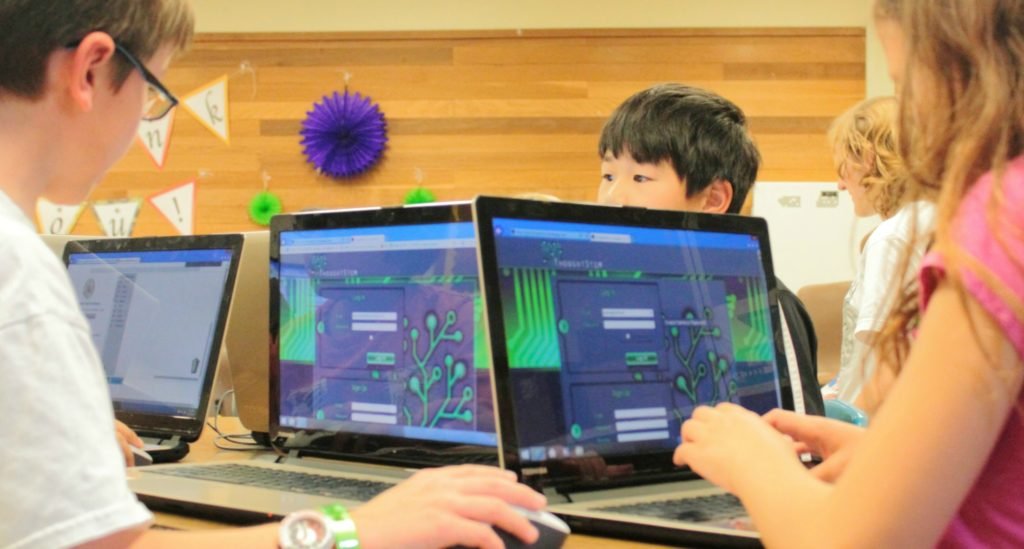India’s children have a new pass time – coding. A recent focus is in place to equip the new generation with the one of the most sought-after skills of this day and age. But thats not the only reason, learning to code brings reaps many benefits. This post aims to compare and contrast the current landscape of India versus that which we have in Pakistan.
What is Code?
In its simplest form, code is a set of instructions for the computer to execute given in a language that the computer understands. Even as one types this post, each key press executes a code block which results in the relevant letter being displayed on the screen.
Benefits of Coding for Children
- Job opportunities – The most obvious reason being the opportunities it opens up for a child who has learnt to code. Looking at how the world continues to develop, companies increasingly rely on tech to run their daily operations.
- Children learn how to think – Coding is not just about writing lines of code. It encourages thinking in a logical way to deliver the desired result.
- Coding encourages creativity – When coding, one often works from a blank slate to the creative marvels we see in applications and games today. Almost-always, there is more than one way of achieving a desired result which helps in allowing the creative juices to flow whilst seeing your efforts come to life acts as a confidence boost.
- It makes Math a little more interesting – Very few children take a keen interest in math. Personally speaking, one found the concepts difficult to grasp. Whilst l was learning to code, I re-learnt a lot of concepts that I’d covered in school but hadn’t used in life since. This time not only was I re-learning them, I found real-life use cases for what I had learnt.
- Coding is fun – The satisfaction of being able to create something from nothing and achieving the small daily milestones is an inexplicable feeling.
- Coding teaches grit and determination – Whilst it is fun, coding has a never ending set of obstacles which must be overcome daily. Though sometimes it can seem impossible, spending a little time on problems going on to resolve them is a great feeling. During this time though, there is a lot of self-doubt and urges to give up but get through it and you come out a lot stronger.
- Time is spent productively: With the success of tablets and smartphones, it is these devices that the children are exposed to first and for extended periods of time. Learning to code can help their critical understanding, rather than just being passive users.
What’s going on in India?
According to an article by World Economic Forum, children in India are learning to code before they talk. It is interesting to see that India has adopted this practice from leading nations such as the US, UK and Europe where there is a massive drive to teach coding to young children. 2017 saw an EdTech startup launch named Cubetto – a coding toolkit for children as young as three – introduced, which is now in close to 300 ‘preschool’ level schools. Raspberry Pi foundation from the UK has also started Code Clubs and Coder Dojo programmes in India to push the initiative.
Progress in Pakistan
After some local research, it appears Pakistan is making headway into getting children to code but what seems to lack is a coordinated effort. It’s great to see individual companies promoting this through ongoing or summer camp courses, but it would be even better to see the government and or start ups similar to Cubetto penetrate school curricula and really reach the masses. Support from entities like the Raspberry Pi Foundation can also help further the cause.
Projects like e-Rozgaar by the Punjab Government deserve a mention as they provide courses that promote coding however their scope remains to tackle the urgent unemployment crisis in Pakistan. It would be interesting to see if the next phase includes a child-focused element.
Contrasting Opinions
As with anything, despite the positive aspects, there will always be possibilities of some negatives. There have been studies that indicate more than two hours of screen time daily can reduce children’s attention span and worsen cognitive skills across a range of functions.
The article by the WEF also quotes a principal as saying that children do not need more machines to teach kids how to handle life. The principal goes on to state that:
The physiology of the child requires the development of both fine and gross motor skills. The child achieves this by spending time playing and using his limbs and body to gain control of his system. Those are the skills that will wire the brain. Introducing technology at an early age will take that away from the child and compromise the physiology forever.
Final Thoughts
Many people will be unfamiliar with the benefits of children learning to code but as we can see above it is definitely an avenue worth pursuing. However, without a unified approach, small individual efforts, though helpful, will leave Pakistan reeling behind our neighbours and the rest of the world in innovation and tech. It is important to stay in line with the rest of the world, but as can be seen, there are health-related issues which are closely linked to prolonged screen time usage hence good time management is required as well as other a close management of children’s other activities to maintain balance.

